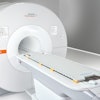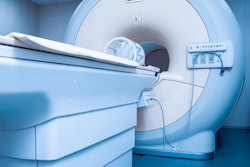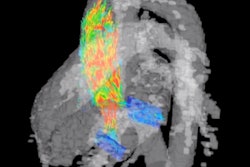
Using 4D MRI, researchers have found that the intraventricular blood flow of the heart in adults born prematurely differs from those who were born at full term, according to a study published June 3 in Radiology: Cardiothoracic Imaging.
The findings indicate that adults born prematurely may be at increased risk for heart failure, wrote a group led by Dr. Philip Corrado of the University of Wisconsin-Madison. Corrado and colleagues sought to investigate why this could be so via a study that included 56 young adults who underwent observational cardiac MRI and 4D flow MRI between 2016 and 2020.
Of the study participants, 35 were born premature and 21 were born at term. The researchers compared kinetic energy and flow through the atrioventricular valve between term-born and preterm participants at systolic and diastolic (early diastolic filling rate) and late diastolic filling rate time points.
The group found that participants born prematurely had lower right ventricular early diastolic filling/atrial contraction rate kinetic energy ratios and lower early diastolic filling/atrial contraction peak filling rate ratios, compared with their term-born counterparts.
"[Our] results suggest that right ventricular diastolic filling is altered in young adults who were born moderately to severely prematurely," the authors concluded.




















